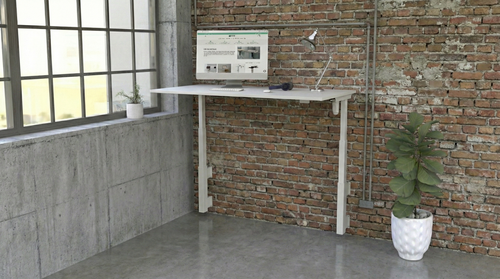Due to the COVID-19 virus, working from home has become a new way of life for some people. Research shows that the possibility of working at home can increase productivity, reduce sick days and improve employee satisfaction in contrast to some commonly held views on working from home. However, working from home also comes with challenges and concerns, such as maintaining boundaries between work and personal life, managing stress and distractions, and staying connected and motivated. If you are working from home, you may want to avoid these common mistakes that can harm your health and productivity.
Mistake #1: Not having a dedicated workspace
One of the benefits of working from home is that you can work from anywhere, but that doesn’t mean you should. Working from your bed, couch, or kitchen table may seem comfortable and convenient, but it can also affect your posture, ergonomics, concentration, and sleep quality. According to a survey by ADP Research, 77% of on-site workers reported having spontaneous conversations with co-workers, compared to only 60% of remote workers. These informal interactions can foster creativity, collaboration, and social support, which are essential for productivity and well-being.
To avoid this mistake, try to create a dedicated workspace that is comfortable, quiet, and well-lit. Ideally, your workspace should be separate from your living space, such as a spare room or a corner of your house. If you don’t have a separate space, you can use a screen, a curtain, or a bookshelf to create physical and psychological boundaries. Make sure you have a proper desk, chair, monitor, keyboard, mouse, and other equipment that suit your needs and preferences. You may also want to invest in some plants, art, or other decorations that make your workspace more pleasant and inspiring.
Mistake #2: Not setting a regular schedule
Another benefit of working from home is that you can have more flexibility in your schedule, but that doesn’t mean you should work whenever you feel like it. Working from home can blur the lines between work and personal time, leading to overwork or underwork. According to ADP Research, remote employees have an average working day that is an hour longer than on-site employees. This can result in burnout, fatigue, stress, and reduced performance. On the other hand, some remote workers may struggle with procrastination, distraction, or lack of motivation, which can also affect their productivity and quality of work.
To avoid this mistake, try to set a regular schedule that works for you and your employer. Establish clear start and end times for your workday, as well as breaks for lunch and snacks. Communicate your availability and expectations with your co-workers, managers, clients, and family members. Use a calendar or a planner to organise your tasks and priorities for each day and week. Stick to your schedule as much as possible, but also be flexible and adaptable to changing circumstances. Remember to clock out when your workday is over and switch off your work devices and notifications.
Mistake #3: Not taking care of yourself
One of the challenges of working from home is that you may neglect your physical and mental health. Working from home can increase the risk of sedentary behaviour, isolation, poor nutrition, and negative self-talk, which can harm your health and productivity. According to a study by researchers from Canada, working from home during the pandemic was associated with lower levels of physical activity, higher levels of stress, and lower levels of life satisfaction.
To avoid this mistake, try to take care of yourself by following these tips:
- Move more: Try to incorporate some physical activity into your daily routine, such as stretching, walking, yoga, or any exercise that you enjoy. You can use a wearable device, an app, or an alarm to remind you to move every hour or so. Physical activity can boost your energy, mood, and focus.
- Stay connected: Try to maintain regular contact with your co-workers, friends, and family members through phone calls, video chats, emails, or social media. You can also join online communities or groups that share your interests or hobbies. Staying connected can reduce loneliness, increase social support, and enhance collaboration.
- Eat well: Try to eat a balanced diet that includes plenty of fruits, vegetables, whole grains, protein, and healthy fats. Avoid skipping meals or snacking on junk food. Drink enough water and limit your intake of caffeine, alcohol, and sugar. Eating well can nourish your body and brain.
- Think positively: Try to use positive self-talk and affirmations to boost your confidence and motivation. Avoid negative thoughts or comparisons that can undermine your self-esteem and performance. You can also practise gratitude, meditation, or other mindfulness techniques to cope with stress and anxiety.
If you can avoid these basic mistakes, which are likely to affect your health and productivity, working from home may be a satisfying and fulfilling experience. You can use the benefits of working from home while maintaining your health and being healthy, when you set up a separate workspace, make sure you have a regularly scheduled schedule in addition to looking after yourself.









































